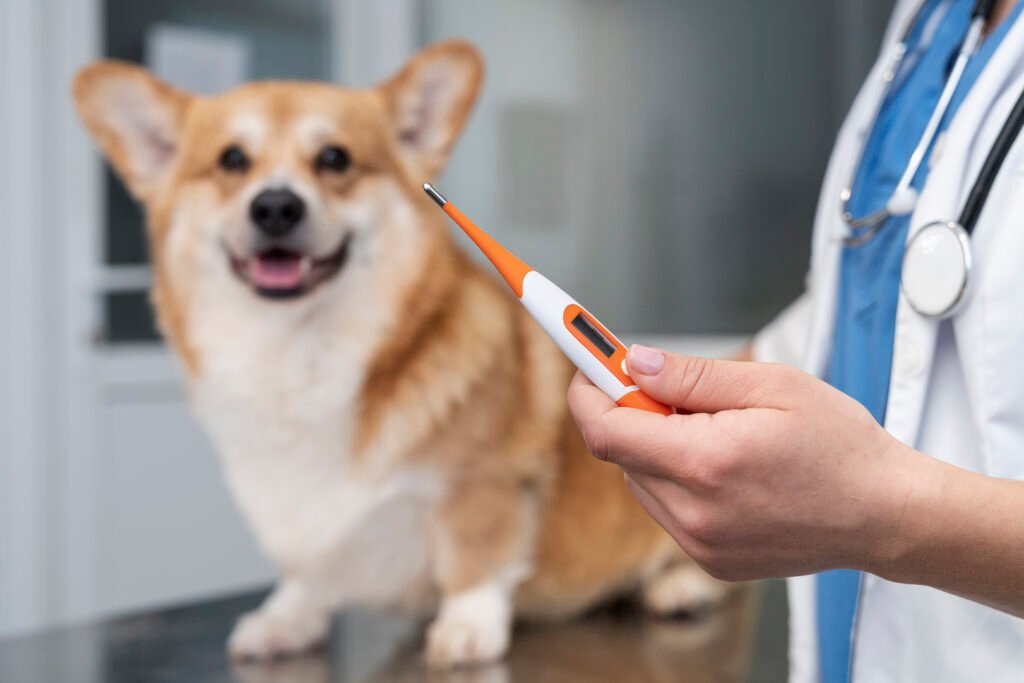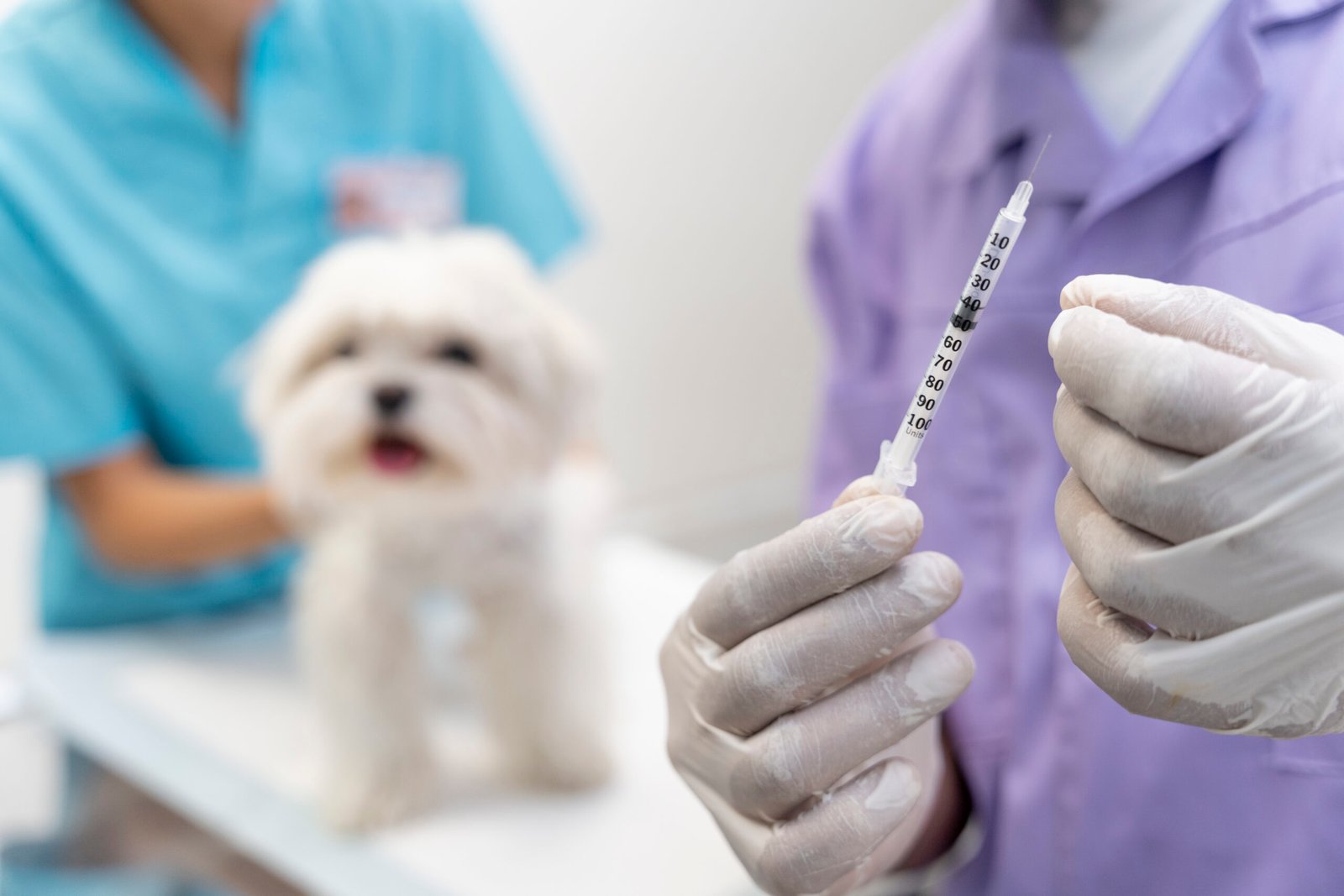
The Complete Guide to Common Vaccinations for Pets: Safeguarding Your Furry Friends
Vaccinations play a critical role in protecting pets from dangerous diseases, ensuring they live happy and healthy lives. Whether you’re a first-time pet owner or a seasoned animal lover, understanding the importance of vaccines is vital for the well-being of your furry friends.
Importance of Vaccinations for Pet Health:
Vaccines are a cornerstone of preventive care for pets. They work by stimulating your pet’s immune system to recognize and fight specific pathogens, such as viruses or bacteria. By vaccinating your pets, you not only protect them but also help prevent the spread of diseases to other animals and even humans.
Vaccines are essential for building immunity against severe illnesses that could otherwise lead to costly treatments or fatal outcomes.
Key Benefits of Pet Vaccinations:
Vaccinations provide numerous advantages, including:
- Preventing Severe Illnesses: Vaccines protect pets from diseases like rabies, distemper, and parvovirus, which can cause severe complications or death.
- Promoting Long-Term Health: Regular vaccinations keep your pets healthy and resilient against infections.
- Protecting Public Health: Some pet diseases, such as rabies, can be transmitted to humans. Vaccinations safeguard not just pets but also your family and community.

What Are Common Vaccinations for Pets?
Vaccines are typically classified into two categories: core vaccines and non-core (optional) vaccines. Core vaccines are considered essential for all pets, while non-core vaccines depend on the pet’s lifestyle and exposure risks.
Core Vaccines for Pets
Core vaccines are critical for protecting pets from widespread and potentially fatal diseases. For dogs and cats, these include:
- Rabies Vaccine: Legally required in most places, the rabies vaccine prevents a deadly virus that can affect both pets and humans.
- Distemper Vaccine (Dogs): Protects against a contagious and often fatal viral disease affecting the respiratory, gastrointestinal, and nervous systems.
- Feline Leukemia Vaccine (Cats): Shields cats from a leading cause of illness and death in felines, particularly those who go outdoors.
Other important vaccines may include those for parvovirus, adenovirus, and feline calicivirus.
Benefits of Vaccinating Your Pets:
Vaccinating your pets offers benefits that extend far beyond immediate protection:
- Prevention of Serious Diseases: By immunizing pets, you can prevent them from contracting potentially life-threatening illnesses.
- Improved Overall Health: Vaccinated pets are generally healthier and live longer, with reduced risks of infections.
- Cost-Effective Care: Preventing a disease through vaccination is much cheaper than treating it.
- Zoonotic Disease Control: Rabies and leptospirosis are examples of diseases that can pass from pets to humans. Vaccinating your pets minimizes this risk.
Pet Vaccination Schedule:
Adhering to a proper vaccination schedule ensures that your pets receive timely protection:
Initial Vaccines (Puppies and Kittens)
Pets typically receive their first vaccines at 6–8 weeks of age. These include:
- Canine distemper and parvovirus for dogs
- Feline rhinotracheitis and panleukopenia for cats
Booster Shots
Booster vaccines are given every 3–4 weeks until pets are 16 weeks old. These ensure lasting immunity during the vulnerable early months of life.
Annual Vaccines
Some vaccines, like rabies, require annual or triennial boosters to maintain effectiveness. Consult your veterinarian to create a tailored vaccination plan.
Veterinary Guidelines and Recommendations:
Veterinarians follow established guidelines to ensure safe and effective vaccination practices. These include:
- Tailoring Vaccination Plans: Not all pets require the same vaccines. Factors like age, breed, health status, and lifestyle influence vaccine recommendations.
- Affordable Options: Many veterinary clinics and shelters offer low-cost vaccination services to ensure access for all pet owners.
- Staying Informed: Always discuss with your vet the latest guidelines and vaccines for emerging diseases.
Potential Side Effects and Precautions:
While vaccines are generally safe, minor side effects can occur, such as:
- Mild swelling at the injection site
- Temporary fatigue or fever
- Rarely, allergic reactions
Preparing Your Pet for Vaccinations:
Before a vaccination appointment:
- Ensure your pet is healthy.
- Discuss any concerns or previous vaccine reactions with your vet.
Post-Vaccination Care:
- Monitor your pet for unusual behavior.
- Provide comfort and a quiet space for recovery.
- Contact your veterinarian if severe reactions occur, such as difficulty breathing or persistent vomiting.
Conclusion:
Vaccinations are an indispensable part of responsible pet ownership. By protecting pets from diseases, vaccinations contribute to their overall health and longevity. Always consult your veterinarian to develop a personalized vaccination schedule tailored to your pet’s needs. Remember, prevention is the key to keeping your furry friends safe and healthy.
FAQs:
What are the core vaccines for dogs?
Core vaccines for dogs include rabies, canine distemper, parvovirus, and adenovirus.
How often should I vaccinate my pet?
Puppies and kittens require a series of vaccinations starting at 6–8 weeks of age, followed by boosters every 1–3 years, depending on the vaccine and vet recommendations.
Are pet vaccines safe?
Yes, pet vaccines are rigorously tested for safety and effectiveness. Side effects are typically mild and temporary.
Can indoor cats skip vaccines?
No, even indoor cats need core vaccines like rabies and feline distemper to protect against unexpected exposures.
What should I do if my pet has a vaccine reaction?
Contact your vet immediately. Most reactions are mild, but severe symptoms like difficulty breathing require urgent care.
Are there affordable vaccination options?
Yes, many clinics, shelters, and organizations offer low-cost vaccination programs to ensure all pets can receive essential care.

